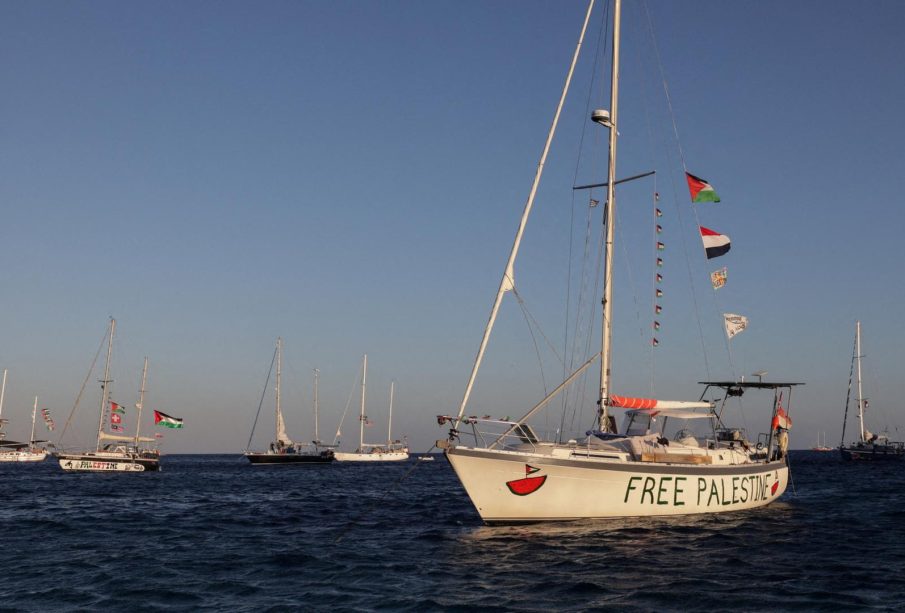Israel Intercepts Gaza Flotilla Amid Rising Tensions

Importance of the Flotilla Incident
The interception of the Gaza flotilla by Israel has significant implications for regional security, maritime negotiations, and humanitarian efforts. This event highlights ongoing tensions between Israel and the Palestinian territories, particularly in the context of making progress toward peace and addressing humanitarian needs in Gaza.
The Interception Event
On October 25, 2023, Israel’s navy intercepted a flotilla attempting to reach the Gaza Strip, which is controlled by Hamas. The flotilla, comprising several ships, aimed to break the Israeli blockade that has been in place since 2007. The Israeli military stated that the vessels did not comply with instructions to turn back and were attempting to breach the naval blockade, raising security concerns.
The operation was conducted off the coast of Gaza, where Israeli naval forces reportedly boarded the ships without any incidents of violence. The Israeli government has defended the blockade as a necessary measure to prevent arms smuggling and to protect its citizens from potential attacks originating from the Gaza Strip.
International Reactions
The interception has elicited a range of responses from around the world. Various humanitarian organizations condemned Israel’s actions, citing potential impacts on the delivery of essential supplies and aid to the people of Gaza. Critics have argued that the blockade exacerbates the humanitarian crisis in the region and that alternative routes for delivering aid should be considered.
Conversely, some nations have backed Israel’s right to secure its borders against threats and called for a balanced approach that considers both humanitarian needs and national security. This incident adds layers to the complex geopolitical landscape in the region, which involves multiple actors and competing narratives.
Future Implications
The interception of the Gaza flotilla exemplifies the ongoing strife between Israel and Palestinian factions, emphasizing the urgent need for renewed dialogue and conflict resolution efforts. While Israel asserts that its military actions are aimed at preventing potential threats, humanitarian advocates argue for a reevaluation of restrictions that hinder aid efforts.
As tensions rise and international scrutiny increases, it remains to be seen how these events will shape future interactions and potentially influence peace negotiations. The international community will closely monitor the situation as both humanitarian needs and security concerns continue to collide in this densely populated and contested area.









